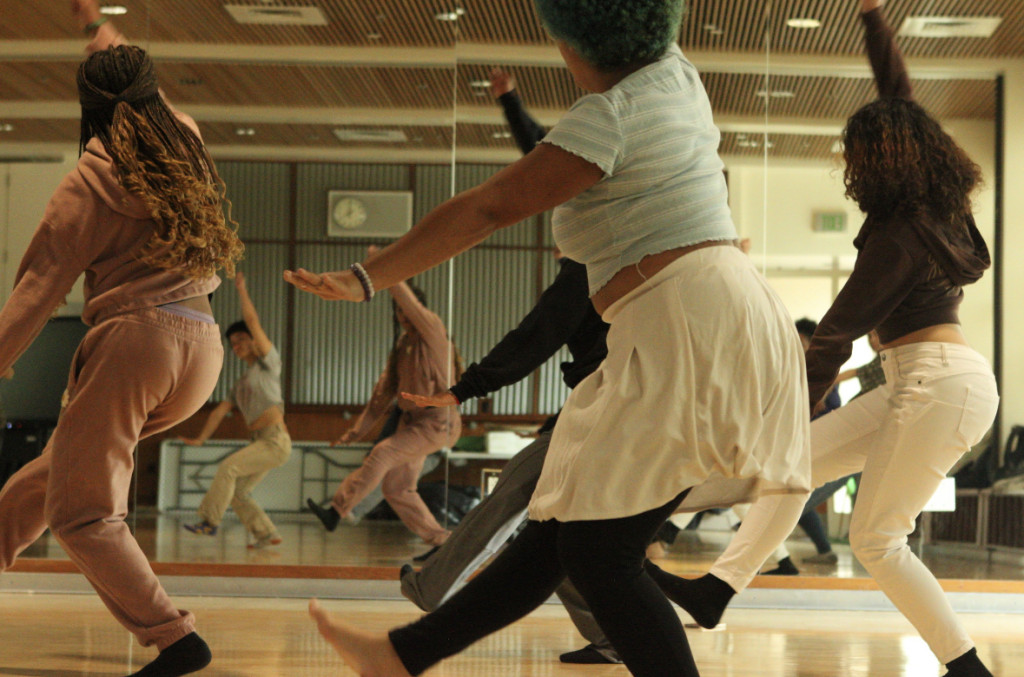“This dance really characterizes what Black women went through,” said African Diaspora dance teacher Dawn “Doc Dub” Williams, speaking on Djouba, a Haitian dance being taught in the African Diaspora Dance class this year. In the dance, female dancers will carry babies on their backs while their work lies in front of them. “They have been working and taking care of children for civilizations. You have your daycare on your back and your work in front of you,” she said.
The dances taught in African Diaspora Dance reflect both the marginalization of Black women as well as their empowerment. African Diaspora Dance at Berkeley High School remains a unifying force that interconnects both Black and female identities. The class cultivates a profound sense of womanhood, rooted in female empowerment. Additionally, it continues to speak to Black history through its movements and their origins.
While the dances portray the true struggles Black women face, the style is also rooted in empowerment. Senior Thaila Jenkins is leading the choreography for “Woman” by Doja Cat. For her, empowerment stems from the femininity and sensuality of her choreography.
“I was trying to embody femininity,” Jenkins said. “I think that’s a big part of womanhood… Allow yourself to embrace (femininity) and to not be afraid of it. Giving face and giving fierceness (speaks) to female empowerment.”
“The ‘Woman’ dance has a very specific Afro beat behind it,” Jenkins continued. While the movements speak to femininity, the music connects with Black identity. “It’s meaningful in the sense where it’s very uplifting for me. It’s fulfilling,” she said.

Williams spoke about the significance of Nina Simone’s “Four Women,” which is also danced to in her class. “There’s no monolithic Black woman,” Williams said. “She’s singing about four different biographies of women. Different skin tones, different histories and different (movements).”
Williams described her experience dancing at a young age in a coed hip hop team. “We the girls were like, ‘I’m not gonna dance to that song because that’s not empowering,’ ” Williams said. “We put our foot down on some of the song choices. ... Making sure our lyrics were communicating what we wanted them to communicate.”
The class also learned about Sarah Baartman, “a Black South African woman who was taken away from her home and brought to Europe to be put on display at state fairs,” Williams said. “Her body was put on display, she was completely dehumanized. Her story is so important because it speaks to how Black women’s bodies were viewed.”
Williams aims to combat this dehumanization of Black women. “This class is the celebration and honoring of the Black woman’s body in a way that is freeing,” she said.
“Being with the girls is really powerful, because it’s a diverse group of people, coming together and embracing (one another),” Jenkins said. “To embrace that energy and bring that vibe is what dance is about. ... We are, in a way, reclaiming power.”
“It’s honorable to be able to create this vision,” Jenkins said. “(We can) show people a vision of what it means to be a woman and what it means to embrace that feminine part of yourself no matter who you are.”





